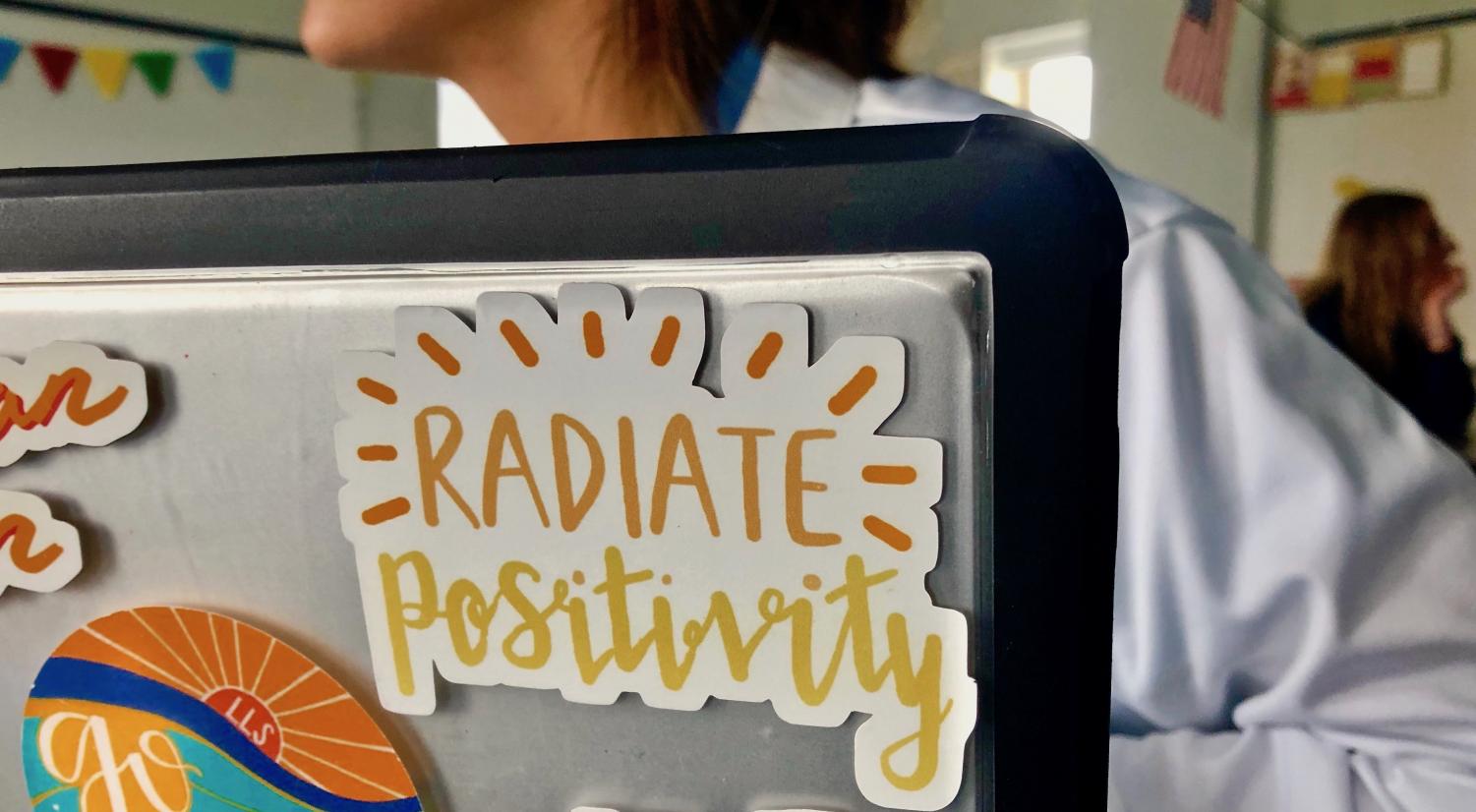Can Positivity Be Toxic? (EDITORIAL)
October 4, 2019
Phrases such as “radiate positivity” or “no negative vibes” can be frequently heard at AHN. From phone cases, to laptop stickers, to class mottos – there is no escape from the “positive realm.”
“The idea of positivity, especially the sayings, are present almost everywhere,” says Kara Petitt (‘20).
Despite the influx of happy messages and cheerful expressions, it seems as if the student body is encompassed in more stress than ever before. While the comments and slogans are initially good intentioned, they can lead to student’s suppression of emotion and lack of personal validity.
This leads to the question: can positivity be toxic?
Are you someone who's always #positive? Although it might seem like a good thing, you might be practicing TOXIC positivity. Find out what that means and how to be positive in a healthy way. #TuesdayThoughtshttps://t.co/N8gHNjZHto
— Brain Education TV (@brainedu_tv) September 24, 2019
Toxic positivity is a mental state where all “negative” emotions are ignored and only “positive” emotions are recognized. Toxic positivity looks down upon feelings sadness, anger, or anxiety. While it is healthy to remain mostly in a “positive” or “happy” state of mind, forcing it upon oneself can lead to self-deprecation. As senior Sam Cuttle says, “No person can stop themselves from being sad. Forcing yourself to be happy just suppresses true emotion and eventually leads to breakdowns.”
More and more Academy girls seem to respond with indifference rather than acknowledgement. The phrase “just be happy” is met with eye rolls. “Lighten up” results in glum dispositions. The word “positivity” has stemmed so far from its original meaning, it has developed almost a negative connotation.
“I see an Academy girl crying at least three times a week,” says Julianna Bland (’21).
Who is creating this false sense of positivity at AHN? Is it the fault of the student body or rather society in general?
Some students feel the issue rises from AHN itself. Senior Maggie Jaap says, “I certainly think that the Academy has an affinity for just trying to make people feel better in order for them to succeed academically rather than out of actual concern for their well-being.”
Similarly Cuttle said, “I feel like it’s Academy creating this stress-culture. Throughout my four years, I’ve been simultaneously told to worry about my classes and college applications, yet to remain completely fine and positive throughout the entire process.”
Toxic positivity is a thing. It's unrealistic to expect people to have positive vibes constantly. Emotions and situations are constantly changing. It's a part of life. Masking your pain or "negativity" will only be detrimental to your mental health.
It's okay to not be okay.
— Mo??♀️ (@TreatYoBrain) September 23, 2019
Senior Hannah Traud, on the other hand, feels the issue is societal and stems from social media specifically.
“Toxic positivity is more prominent on social media than anywhere else. You always get people posting things like ‘don’t be negative’ and ‘everything will be better’ but those posts fail to address the underlying problems of mental health. It’s not always easy for someone to ‘get over it’ or ‘be less negative.’ That needs to change,” says Traud.
Others in the Academy community feel toxic positivity is not seen within the school. Religion and mathematics teachers Megan Dubee says, “I don’t see [toxic positivity] in my students. In general I feel that – at least in my classes – we have pretty authentic relationships.”
Junior Maria Kynkor agrees with Dubee, “I think AHN, as a whole, does a good job promoting positivity rather than commanding it.”
Regardless of whether the problem is an exaggeration or an accurate assessment, the concept of toxic positivity does not stay within our yellow brick walls.
According to Time Magazine, only 33% of Americans said they were happy or content in a 2017 study. The research goes on to say, “overemphasizing happiness can make people more likely to obsess over failure and negative emotions.”
“I think that if you’re being too positive to the point of being inauthentic, it can become toxic. We have a culture that is very ‘fake till you make it,’ which creates an environment where people don’t feel comfortable being themselves,” says guidance counselor Emily Pantelis.
How can you avoid toxic positivity?
Validate both your and others’ emotions. Acknowledge your feelings of hurt, of disappointment, or of whatever they may be. Know that feeling “down” is a part of being human and it is completely normal to experience pain. The key is not to wallow in the feelings, but rather think of practical solutions to solve them.
Listen to others. Be an open ear to your peers. Allow them to be expressive of their emotions and experience validation. When students’ feel supported in their community, they are more likely to develop confidence.
“When students feel they can express themselves, they are more likely to share and then eventually solve their problems,” says Pantelis.
Take steps towards change. After accepting and experiencing emotion, remember not to get stuck in a rut. Whether it be taking a walk, talking to a guidance counselor, or confronting an issue, take steps to improve your situation.




Sarah Aschenbrenner • Oct 14, 2019 at 9:06 pm
Through my personal experience here at AHN, I have always been surrounded by positivity. I feel that everyone here is genuine in their kindness, and that for the most part there is no “toxic” positivity in our school. : )
Sarah Aschenbrenner • Oct 14, 2019 at 9:00 pm
I love this article so much! As a freshman at AHN, I truly have been welcomed into such a positive environment. I love going into school everyday and being in such a good atmosphere. : )
Sister Ann • Oct 4, 2019 at 8:20 pm
Good ideas in this article. Perhaps our school motto would be a way of addressing toxicity – To be rather than to seem – Esse Quam Videri.